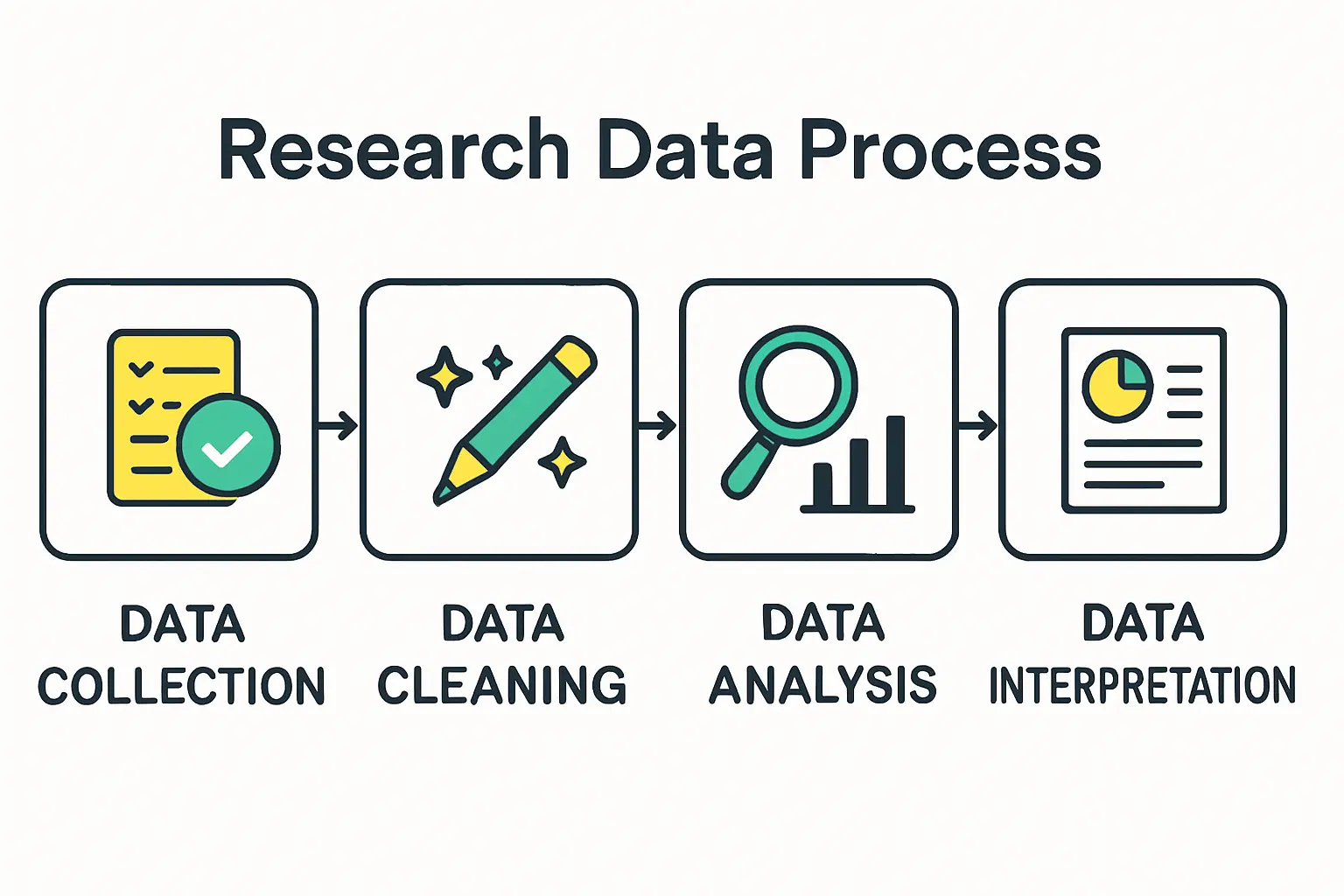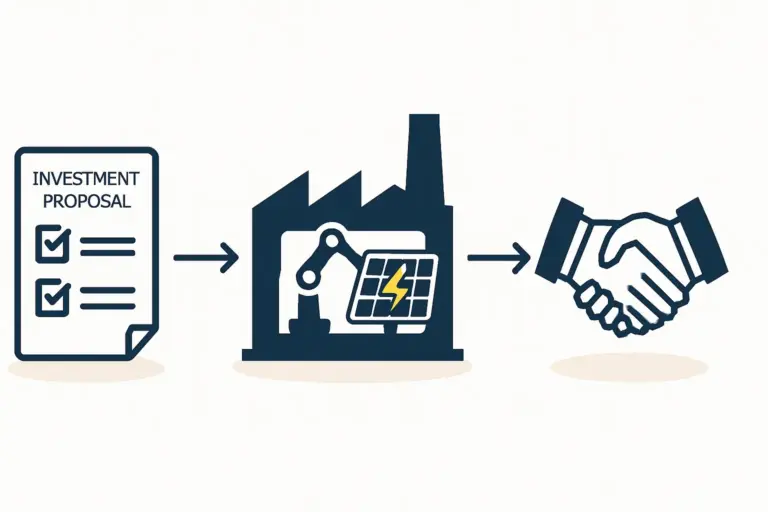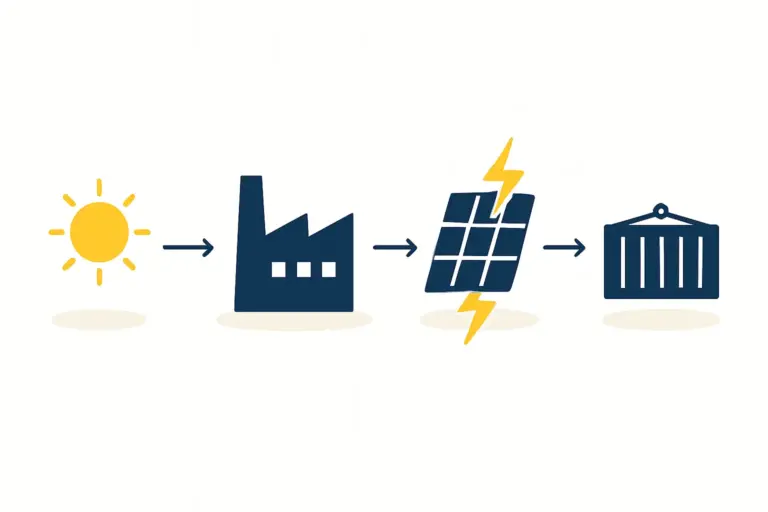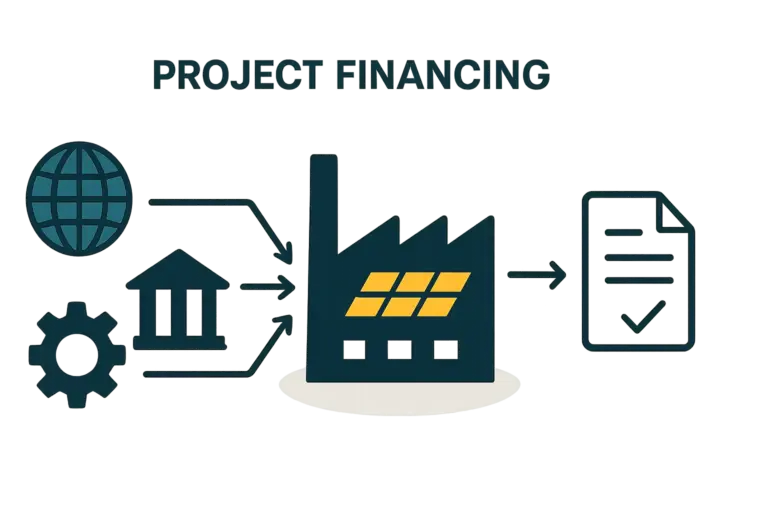An entrepreneur has secured funding, identified a promising market, and even selected the technology for a new solar module factory. The focus is naturally on production efficiency and product quality. But a critical question is often overlooked until it becomes a costly problem: How will the delicate, multi-million-dollar machinery arrive safely?
How will a steady stream of raw materials be supplied? And how will thousands of finished solar panels efficiently reach customers across the region?
The success of a manufacturing venture hinges not just on what happens inside the factory, but on the logistical network that feeds it and carries its products to market. For any business considering Jordan as a base for solar module manufacturing, the Port of Aqaba is the single most important piece of this logistical puzzle. We’ll examine the port’s infrastructure, customs procedures, and strategic position for both importing components and exporting finished solar modules.
Why Port Infrastructure is a Cornerstone of Solar Manufacturing
A solar panel factory depends on a dual flow of goods. First comes the initial, complex project of importing an entire production line—specialized, oversized, and sensitive equipment that requires careful handling. Then comes the continuous, high-volume import of raw materials, from glass panes and aluminum frames to solar cells and junction boxes.
At the same time, the factory must manage the outbound shipping of finished solar panels. These are relatively fragile, high-value products that need to be delivered to regional markets in a timely and cost-effective manner.
The port, therefore, is not merely a point of entry but the factory’s primary link to the global supply chain. Its efficiency, capacity, and connectivity directly impact production timelines, operational costs, and, ultimately, the profitability of the entire venture. A miscalculation in logistical planning can lead to production shutdowns from a lack of materials or lost sales from delivery delays.
An Overview of the Port of Aqaba’s Capabilities
Located at the northern tip of the Red Sea, the Port of Aqaba holds a unique strategic position at the crossroads of Asia, Africa, and Europe. It is Jordan’s only maritime outlet and a crucial gateway for trade in the Levant region.
The port’s capabilities are best demonstrated by the Aqaba Container Terminal (ACT), a modern facility operated by APM Terminals that is well-equipped to handle the demands of an industrial-scale operation.
Key Infrastructure Metrics:
Quay Length: 1,000 meters
Annual Capacity: Over 1.3 million TEUs (twenty-foot equivalent units)
Draft: Up to 14.5 meters, capable of accommodating large container vessels
Equipment: The terminal operates with modern ship-to-shore (STS) gantry cranes, ensuring efficient loading and unloading.
This infrastructure provides the capacity required for a solar module manufacturing operation, which might handle several hundred containers per year for both raw material imports and finished product exports.

Analyzing the Import Process: Machinery and Raw Materials
The import process involves two distinct phases, each with its own logistical challenges: the one-time import of the factory line and the ongoing import of production materials.
Importing a Turnkey Production Line
The initial setup of a solar factory involves shipping a complete turnkey production line. This is not standard container freight. Equipment like laminators and cell stringers can be oversized and require specialized handling, such as flat-rack or open-top containers.
An investor’s primary concerns during this phase are:
- Customs Classification: Ensuring complex machinery is correctly classified to avoid customs delays and unexpected tariffs.
- Port Handling Capabilities: Confirming the port has the heavy-lift equipment and storage space for non-standard cargo.
- Inland Transport: Planning the route from the port to the factory site, accounting for road limitations on oversized loads.
Experience with turnkey projects shows that partnering with a freight forwarder specializing in industrial machinery is critical. An expert partner can navigate documentation requirements and coordinate with port authorities, preventing delays that could set back a project’s timeline by weeks.
Managing the Inflow of Raw Materials
Once operational, the factory requires a constant, predictable supply of raw materials. These materials—including solar glass, EVA encapsulant, backsheets, and aluminum frames—are typically sourced from international suppliers and arrive in standard containers.
The Port of Aqaba’s efficiency is paramount here. The Aqaba Special Economic Zone Authority (ASEZA) plays a vital role in streamlining this process. For businesses operating within the zone, ASEZA offers simplified customs procedures and potential duty exemptions on raw materials used in manufacturing, providing a significant competitive advantage. A consistent, predictable customs clearance time, often within 2-4 days for well-documented shipments, allows for leaner inventory management and reduces working capital requirements.
The Export Pathway: Shipping Finished Modules to MENA Markets
Jordan’s strategic location makes it an ideal base for exporting to high-demand markets in the Middle East and North Africa. The Port of Aqaba serves as the primary hub for reaching customers in Iraq, Saudi Arabia, Egypt, and other Levant countries.
The key advantages for exporters include:
Connectivity: Major shipping lines like Maersk, MSC, and CMA CGM connect Aqaba to key regional and global ports.
Transit Times: The port offers competitive shipping times to nearby markets. For example, sea freight to Jeddah can take just a few days, while reaching ports in Egypt is similarly efficient.
Land-Based Trade: Aqaba is connected by a modern highway system to neighboring countries. This allows for efficient multimodal transport, where containers can be shipped to Aqaba and then trucked to final destinations in countries like Iraq.
This robust network allows a manufacturer to reliably serve a wide geographic area, a crucial factor in business and factory planning.

Key Logistical Considerations and Potential Challenges
While the Port of Aqaba presents a strong logistical case, investors must be aware of potential challenges and plan accordingly.
Customs Clearance and Documentation
Although processes within the ASEZ are streamlined, precision in documentation is non-negotiable. Minor errors in the bill of lading, certificate of origin, or commercial invoice can lead to inspections and costly delays. Working with a reputable local customs broker is not an optional expense but a necessary investment.
Inland Transportation
The cost and reliability of trucking from Aqaba to the factory must be factored into the operational budget. The main highway to industrial zones around Amman is well-maintained, but transportation can be a significant component of the final product cost, especially for a 20-50 MW factory shipping dozens of containers a month.
Port Congestion and Regional Factors
Like any major port, Aqaba can experience periods of congestion. It is wise to plan shipments to avoid peak times, such as the period leading up to major holidays. And while Jordan is stable, regional geopolitical events can occasionally impact shipping lanes in the Red Sea, making contingency planning and robust supply chain management essential.

Frequently Asked Questions (FAQ)
What is the role of the Aqaba Special Economic Zone (ASEZ)?
The ASEZ is a legally designated area with special regulatory and fiscal policies designed to attract investment. For manufacturers, its key benefits include simplified customs procedures, potential tax incentives, and streamlined administrative processes, all managed by the Aqaba Special Economic Zone Authority (ASEZA).
Which major shipping lines operate out of the Port of Aqaba?
Most major global shipping carriers have a presence in Aqaba, including Maersk, MSC, CMA CGM, Hapag-Lloyd, and Evergreen Line. This ensures competitive pricing and a wide range of global and regional shipping options.
Are there specialized logistics providers for industrial projects in Jordan?
Yes, several international and local logistics firms in Jordan have experience handling heavy and oversized industrial cargo. They can manage the entire process from the port of origin to the final factory site, including customs clearance and inland transportation. Engaging one early in the planning phase is highly recommended.
How does regional stability affect port operations?
The Port of Aqaba has a strong track record of operational reliability and is well-insulated from regional conflicts. The port is a critical national asset for Jordan, meaning security and operational continuity are top priorities.
The Port of Aqaba is a highly capable and strategically positioned asset for any entrepreneur planning to enter the solar manufacturing sector in the MENA region. Its modern infrastructure, the business-friendly framework of the ASEZ, and its excellent connectivity provide the foundation for a successful operation. However, leveraging these advantages requires meticulous planning, a deep understanding of customs, and partnerships with experienced local logistics providers. A thorough logistical analysis is not just a preliminary step—it is a critical component of a comprehensive business plan.






